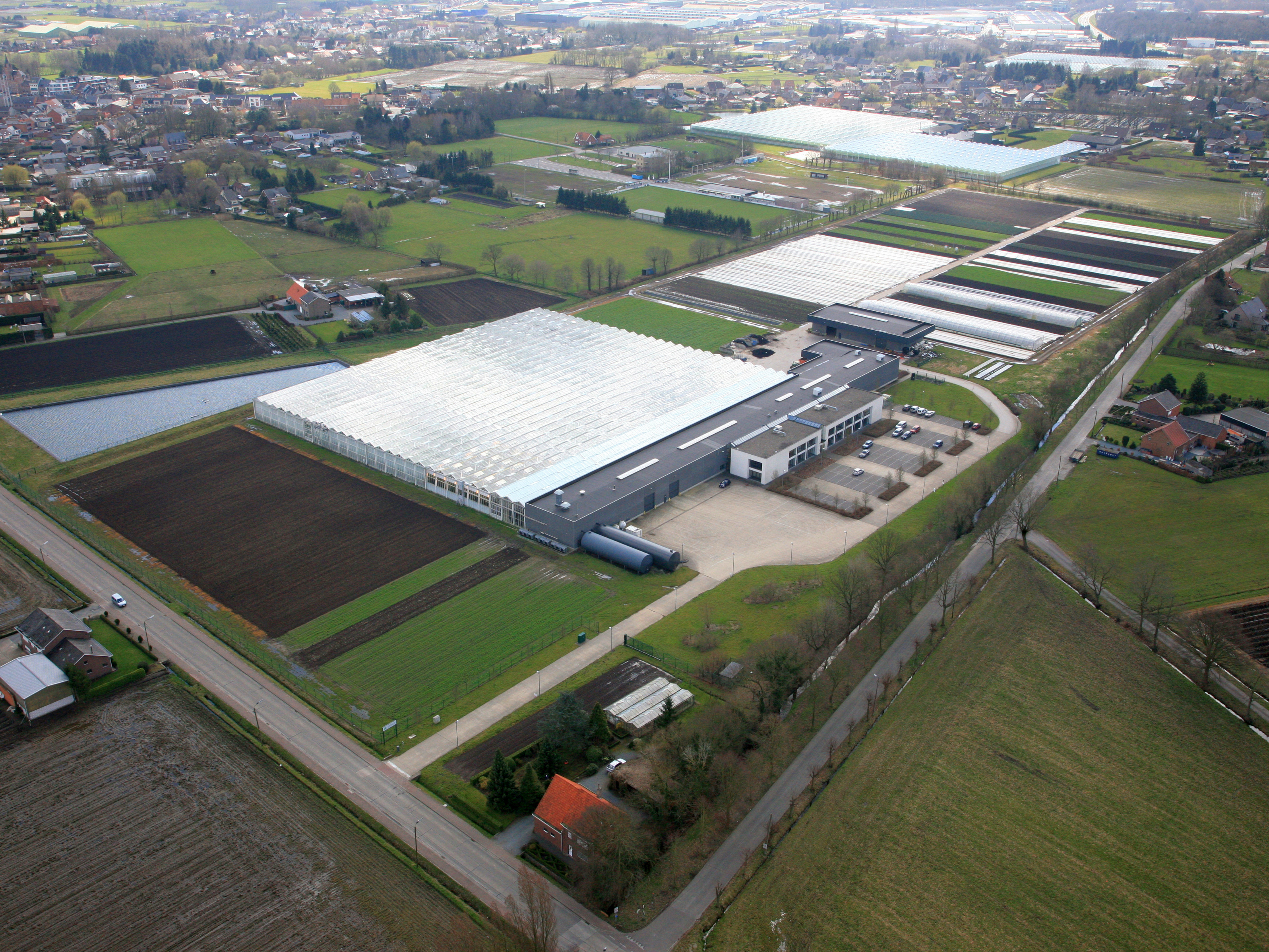Visit a major partner of the UV-ROBOT project - PSKW

A field trip to a major partner of the INTERREG project 'UV-ROBOT'. This project will revolutionize IPM strategies for greenhouse crops. Research has shown that UV-C light can effectively control powdery mildew in strawberry and other crops and acts as a sustainable alternative to some crop protection products. The project’s aim is to develop a fully autonomous vehicle to fight mildew with UV-C in strawberry, tomato, cucumber, lettuce and basil.
UV-ROBOT project
Powdery mildew is a very common disease of most greenhouse crops. The fungus forms white, powdery spots of fungal growth on the leaf surface, which block sunlight and parasitize on the sap of the crop to form necrotic lesions. Current horticultural practices rely on crop protection products to counter this disease. However, the emergence of tolerant mildew strains and a lack of new active ingredients makes it increasingly difficult to fight the fungus. Research has shown that powdery mildew and other fungal pathogens like Botrytis and downy mildew of lettuce and basil can be countered with UV-C light.
UV-C light is produced by the sun, but it cannot penetrate the Earth’s ozone layer unlike UV-A and UV-B light. Human exposure to UV-C can quickly lead to sunburn, which makes it vital that the application process is fully automated without human intervention. The project aims to find the optimal dose to counter the diseases without damaging the crop. Starting from now the UV-ROBOT will irradiate all the strawberries at the Research Centre Hoogstraten, where several questions need to be answered: How often does the crop need to be irradiated? Is it more effective to treat the crop at night? What is the effect of UV-C light on beneficial insects? How does UV-C light fit in with the current IPM strategies?
The UV-ROBOT project is led by Research Centre Hoogstraten. They will provide the necessary horticultural expertise, together with The Research Station for Vegetable Production in Sint-Katelijne-Waver (PSKW) and the STC Research Foundation in the UK. The actual robots will be developed by Octinion. A user-friendly interface will be developed by CESI (France). Roboscientific (UK) will co-create innovative sensors and French and British partners CATE, CDDM and NIAB EMR will help to demonstrate the robots across north-west Europe and ensure its enrolment.
This research project has been made possible by € 1,35 million of funding by the European Union and € 700.000 of funding by the province of Antwerpen. The total project budget is €2,26 million. More information and project updates can be found on the INTERREG-website of the project
Next field trip
Do you want to visit one of the major partners of this INTERREG project? The Research Station for Vegetable Production (PSKW) is located in the centre of one of the most important production regions of fresh vegetables in Flanders (Belgium).
The research centre creates a link between the fundamental scientific research done by universities and the growers. The research facility consist of a greenhouse (°2006) of 1,3 ha with 23 independent compartments and more than 10 ha of fields where, among others, tomatoes, lettuce, sweet pepper, cucumber and zucchini are grown.
Find more about PSKW at their website.

